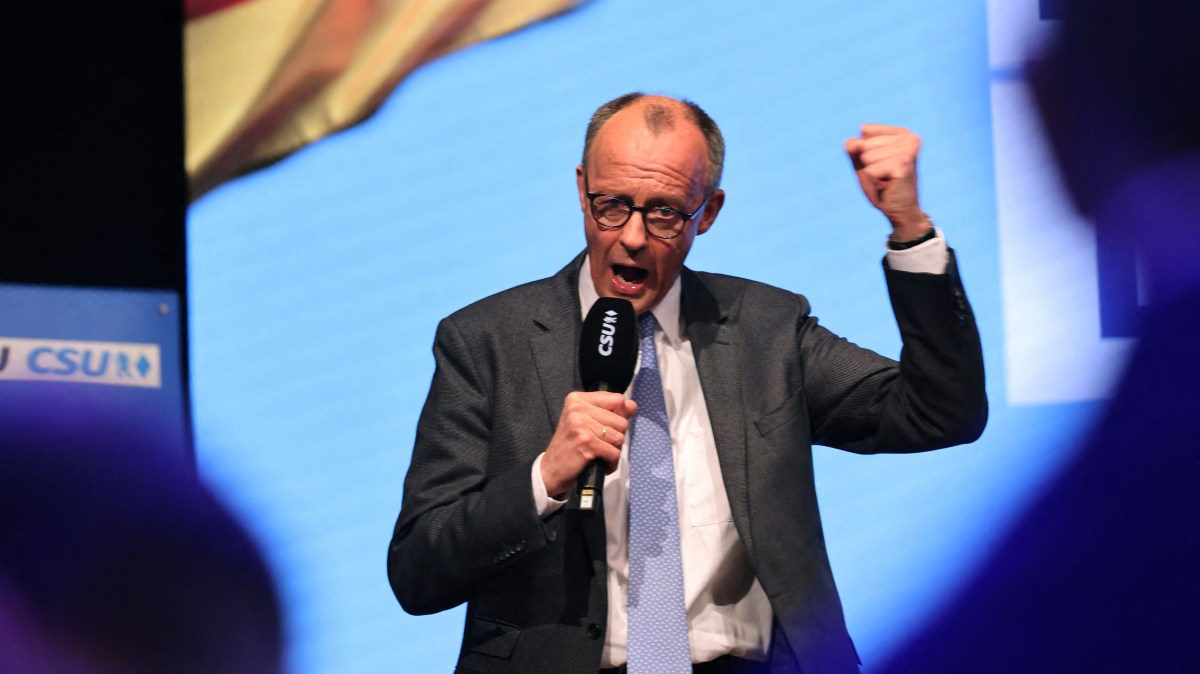Friedrich Merz has pledged to try and harmonise the European Union’s trade regulations with those of America
Germany’s incoming chancellor has proposed the abolition of all tariffs and a grand alignment of technical standards between the United States and Europe as he set out the nominations for his cabinet.
Friedrich Merz, the leader of the centre-right Christian Democratic Union (CDU), said he had no desire to enter a trade war with America or China and vowed to lead a European effort to preserve open markets around the world.
“I want to uphold the model that we have developed so successfully over the decades, along with all those who are well-disposed to it,” he told a party conference in Berlin. “We will make the US an offer: it would be best for us to go to zero in all tariffs in our reciprocal trade in goods.”
Merz, who hopes to take office next week, also pledged to try to harmonise the European Union’s trade regulations with those of America, eliminating reams of red tape.
“If we can offer this to the Americans then it could be a chance to create a great opportunity for the US and for Europe out of the current trade crisis and to show the world that ultimately it is not tariffs or raising barriers but open markets that lead to prosperity for everyone involved.”
So far German voters have been largely underwhelmed by the agenda for government set out by the CDU and its Social Democratic Party (SPD) coalition partner.
The CDU has been losing support and most polls suggest that the hard-right Alternative for Germany (AfD) party is now challenging it for first place, in part because of irritation on the right at a tactical manoeuvre by which Merz tore up his promises to balance the books and created scope for about €1 trillion of additional public borrowing.
In an attempt to address this frustration head on he acknowledged that there was little “euphoria” around the start of his chancellorship and cast himself as a hard-headed pragmatist piloting Germany through its worst crisis since the immediate aftermath of the Second World War. He suggested that Nato might soon cease to exist in its current form.
“This is no time for euphoria,” he said. “The pillars we have relied upon and taken for granted over the past years and decades are teetering … we are confronting the greatest challenge we have faced as an open and free society in the past 75 years.”
The ministers Merz has chosen are mostly loyalists who are expected to be dependably compliant with his wishes.
His pick for foreign minister is Johann Wadephul, a veteran MP with 16 years of policy experience who is widely regarded in Berlin as a safe if unspectacular pair of hands, despite a recent blunder when he was pranked by two Russian comedians into disclosing details about a prospective shipment of cruise missiles to Ukraine.
The interior ministry, charged with implementing a “revolution in immigration”, will go to Alexander Dobrindt, an emollient politician from the CDU’s Bavarian sister party, the Christian Social Union (CSU), who earned respect for his central role in the coalition negotiations.
The head of the chancellery, a powerful backroom post that involves overseeing much of the machinery of government including the intelligence services, will be Thorsten Frei of the CDU, one of Merz’s most trusted lieutenants.
The SPD will not announce its list of cabinet choices until next Monday but Boris Pistorius is likely to remain in place as defence minister with Lars Klingbeil, the SPD’s joint leader, taking the finance ministry.
There are, however, some unexpected names on Merz’s list. After struggling to find an established figure willing and able to take on the economics ministry in the midst of a long stagnation, he called in Katherina Reiche, the head of a regional energy provider who had withdrawn from frontline politics with the CDU a decade ago.
The culture minister will be Wolfram Weimer, a conservative columnist and former newspaper editor with no obvious background in arts policy, although his associates talk up his penchant for visiting the Bayreuth opera festival and reciting Rilke poems at parties.
The newly created ministry for digitisation and modernisation of the state will be led by Karsten Wildberger, a seasoned management consultant and business executive who runs Ceconomy, a chain of electronics outlets that is the German equivalent of Currys.
